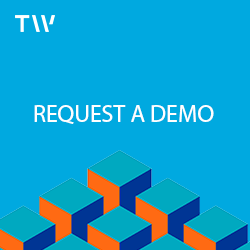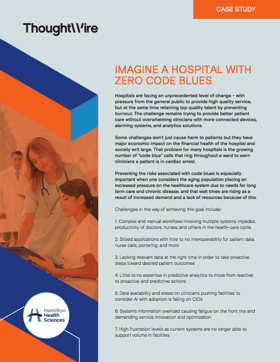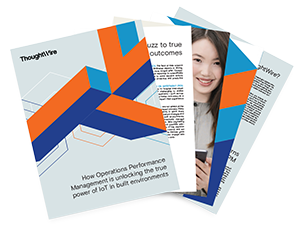Earlier today we announced an exciting new partnership with Microsoft to deliver our proven Smart Hospital Suite of applications at scale through Microsoft Azure. Together, we’re addressing some of the biggest challenges facing health systems including, the rising cost of healthcare, clinician burnout, the inability to operationalize data quickly, disconnected data silos and more.
Microsoft was a natural partner for ThoughtWire, we share the same goals for addressing healthcare’s biggest challenges and Microsoft has placed big bets on a few technologies to get us there – in particular AI and IoT. Our people-centric applications are designed to address the challenges associated with the complexity of health systems, the orchestration of not only data from clinical and IT systems but IoT devices connected to equipment, real-time data entered by people, and even the building itself. AI and Machine Learning are more than buzzwords to our team but they are not seen as the silver bullet saviour for all of healthcare’s challenges. Our approach is to leverage AI and ML to help drive real-time context for clinicians so they can take more informed decisions faster. We’re augmenting their already intelligent workflows with the right data at the right time.
Advanced ML allow us to us to predict events before they occur, using data about a patient’s health history, current state, and potential deterioration risk factors, we can determine if a patient will have a cardiac arrest. An early adopter and innovator in healthcare delivery, Hamilton Health Sciences, leveraged our EarlyWarning app to do just that – they’ve seen a 61% reduction in the number of code blue calls at their hospital as a result of predicting and pre-empting when at the first signs of patient deterioration. AI and ML are only half of the story here, while the algorithm to detect deterioration risk (Hamilton Early Warning Score) utilizes ML to determine the score, the mobilization of the clinical teams to respond is based on intelligent orchestration of data and automation of workflow. This intelligent orchestration resulted in a nearly 9 times faster process that has contributed to countless lives saved. Read the case study for more.
We’re bringing the power of applications like EarlyWarning at scale with Microsoft Azure. Watch our partner spotlight video with Microsoft to hear more about ThoughtWire and our Smart Hospital Suite.
Don’t miss us at #HIMSS 2019, visit us at booth #1721 or schedule a meeting for a 1:1 demo.






